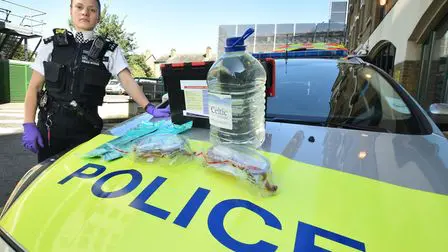Tackling Acid Attacks: Reducing Violent Crime & Supporting Victims
Date of Event: Thursday, July 8th 2021
Webinar
Key Speakers Include:
Dr Simon Harding, Professor of Criminology at the University of West London
Sheldon Thomas, Founder of Gangsline
Cherie Johnson, Expert on Girls in Gangs
Dr Matt Hopkins, Associate Professor at the University Leicester
Nurun Nahar Begum, Senior Programme Officer at ActionAid Bangladesh
Diana Garrisi, Assistant Professor at the Xi’an Jiaotong-Liverpool University
Event Details Website Register to Attend
Per capita the UK has one of the highest rates of recorded acid attacks in the world. According to Acid Survivors Trust International, in the year leading up to March 2020 there were 619 crimes committed in the UK where corrosive substances were used – a 37% increase since 2017. Research suggests that many of the attacks are part of gang related activities and that acid is becoming the weapon of choice. The issue has improved in the UK capital though. Acid attacks in London peaked in 2017 at 472 and have steadily fallen in the subsequent years (123 in 2019), suggesting that police and other stakeholders can make changes to reduce the prevalence of acid attacks nationwide.
The Offensive Weapons Act passed in 2019 is the first piece of UK legislation to refer to corrosive substances, and has made it an offence to possess a corrosive substance in a public place and to sell certain harmful corrosive products to under 18s. Following on from the 2017 expansion of stop and search powers more generally, in 2019 the then Home Secretary, Sajid Javid, provided the police with further stop and search powers to help them target those using corrosive materials illegally. The government have also committed to increasing police numbers, which proponents claim will help counter violent crime and remove dangerous substances from UK streets.
While the current pandemic has suppressed the number of acid attacks over the last 12 months, there are concerns that the lockdown and subsequent recession could be a catalyst for the drivers of these attacks resulting in a sudden spike. The forced closure of youth centres during the pandemic and concerns about their future funding has raised fears of a return to the austerity era mass closure of youth centres, which was seen as a root cause of youth and gang violence. Furthermore, the last 12 months have thrown up new challenges particularly for victims of acid attacks, who are often left with both physical and mental trauma for many years after the attacks. The lack of access to rehabilitation services that address common effects of acid attacks like loss of sight, loss of limbs and depression means that victims have been acutely affected by the last year.
This symposium therefore offers police officers, community wardens, acid attack support groups and local authority members the opportunity to evaluate how the reemergence from lockdown could lead to a spike in acid attacks, develop new ideas to support victims, and to share best practice in preventing this cruel form of both gang and honour based violence.
Program
- Examine the Offensive Weapons Act and how it will support tackling acid attacks
- Establish an understanding of the motive behind acid attacks and how they relate to other serious crimes including gang violence and honour based violence
- Discuss how Covid-19 has affected victims of acid attacks and innovative methods employed to support them during lockdown
- Analyse the best approaches for police to take when tackling acid attacks in local areas
- Learn how those who have committed acid attacks can be successfully rehabilitated and reenter the community
- Discover approaches to best supporting those whose life has been affected by acid attacks
- Uncover the causes for the significant growth in acid attacks since the early 2010s
- Understand the impact of ‘stop and search’ policies and how to utilise them effectively
- Learn how retailers can help in the reduction of the sale of corrosive materials to dangerous individuals
- Discuss preventative measures including, police officers carrying acid testing kits
To register for this briefing, please click here.
Please feel free to circulate this information on to any relevant colleagues.
Kind regards, Conference Team
Public Policy Exchange
Tel: 020 3137 8630
Fax: 020 3137 1459







